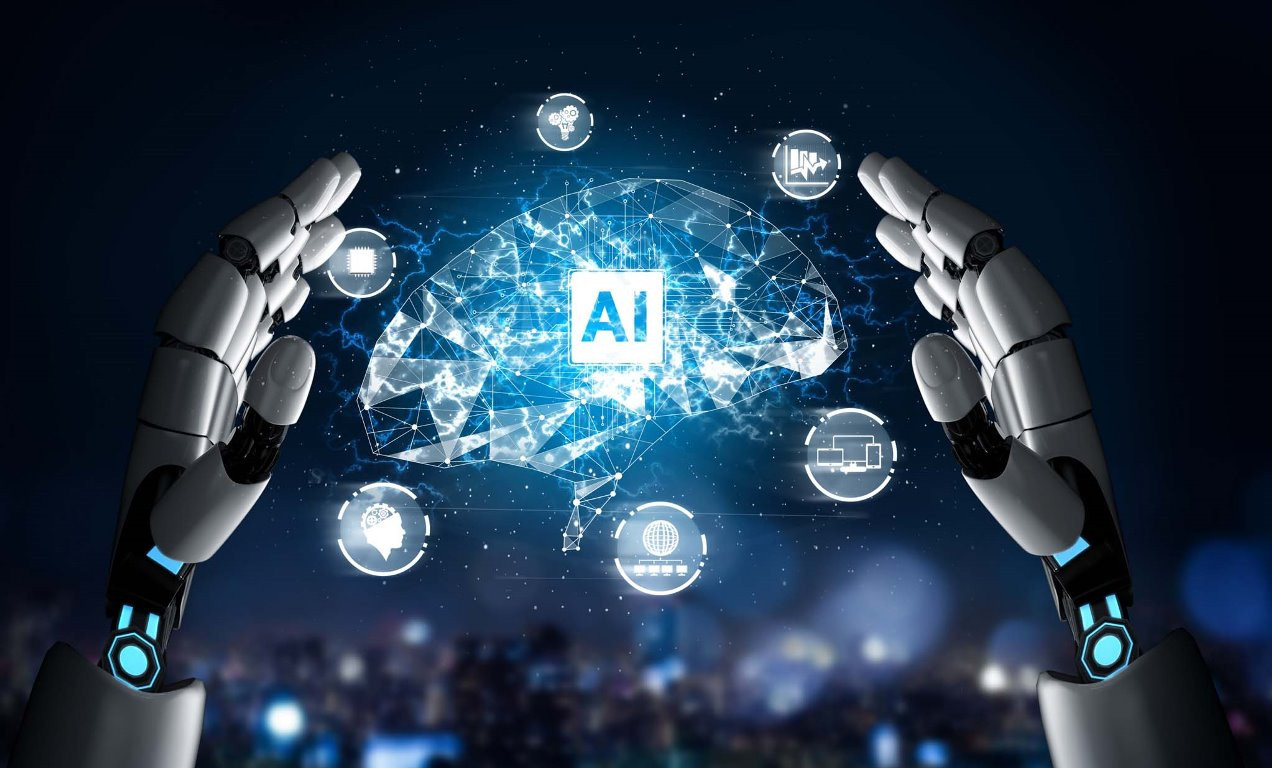
“We used to worry that children spent too much time watching TV and they did not read books. Later, we worried that children used mobile devices too much and did not spend time watching TV. And now, with AI, we are afraid that children will talk with AI too much, not with parents. Worries always exist. In the next five years, there will be many forms of communications. However, adapting to new things quickly is human nature,” said Dinh Tran Tuan Linh, CEO of AIDA, a firm specializing in AI.
AI technology is developing fast and it is difficult to give long-term predictions.
InfoRe Technology CEO Le Cong Thanh believes that AI turned up at least 20 years ago, in large-scale systems in the internet.
In fact, people used AI daily when using the internet, but did not recognize this when they were on YouTube, Google and Facebook. This is a passive way of using AI, as people only interact with results suggested by AI. But since last year, with the appearance of ChatGPT, users now can take the initiative.
Ly Phuong, an architect, said she has been trying to use AI tools over the last year. She uses Midjourney to create ideas, and ChatGPT as a virtual assistant in looking up information.
Phuong concluded that ChatGPT is very useful. “When I need to learn about hot water supply systems to install in construction works, I ask ChatGPT. The tool provides general information about different systems, their advantages and disadvantages, and prices of every technology,” she said.
“If I had to seek information myself, I would have to spend several hours on this. ChatGPT can give answers just after several minutes,” she explained.
As for Midjourney, the tool can outline construction works based on input descriptions under the form of text. AI can create visual images based on customers’ requirements, which helps create ideas for products.
Asked about the impact that AI may have on careers in Vietnam, Dang Minh Tuan, head of CMC Technology Research and Application, said when utilizing new technologies, productivity will improve, while changes in production methods will cause some professions to disappear and new professions to appear.
In Vietnam, new careers will be born in the era of AI, such as data labeling, tuning and verification. However, he believes that in the immediate time, ChatGPT just gives support to users, and still cannot replace humans.
Linh thinks that the careers which are most likely to replace is content generation, programming and advertising, while other careers may bear less impact, such as law, education and healthcare, because they have a cautious attitude about AI applications.
According to Linh, workers need to consider two things amid the AI wave. First, they need to find out if their jobs are replaceable. At a press agency, for example, there are people who collect news and are likely to be replaced by AI. Meanwhile, other content generators, who need to show viewpoints or those who seek information in localities, cannot be replaced.
According to Thanh, Vietnam has two strong points – resources and people. Eighty percent of Vietnamese people have smartphones with internet connection, which aretools for mass digitization. With the figure, Vietnam ranks among the world’s top 15 in life digitization. This generates an extremely strong data flow. However, the problem is that while data is generated, it still cannot be fully exploited.
Thanh said that Vietnam has great opportunities to keep up pace with modern AI technologies to improve productivity.
Trong Dat